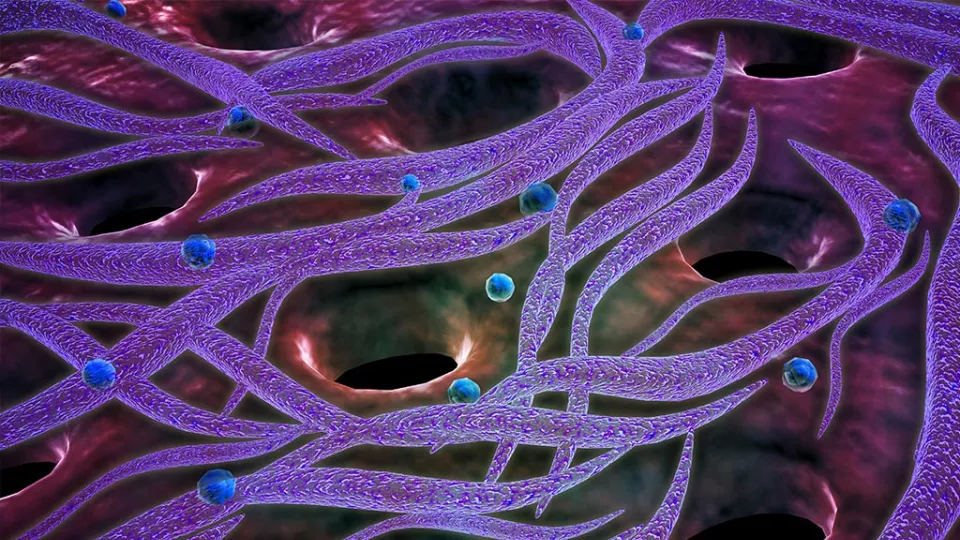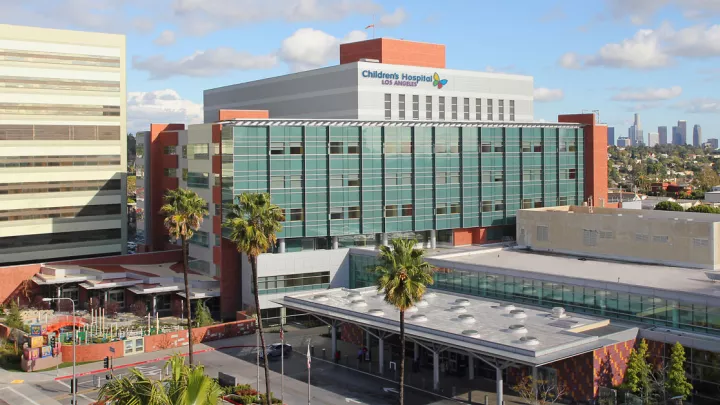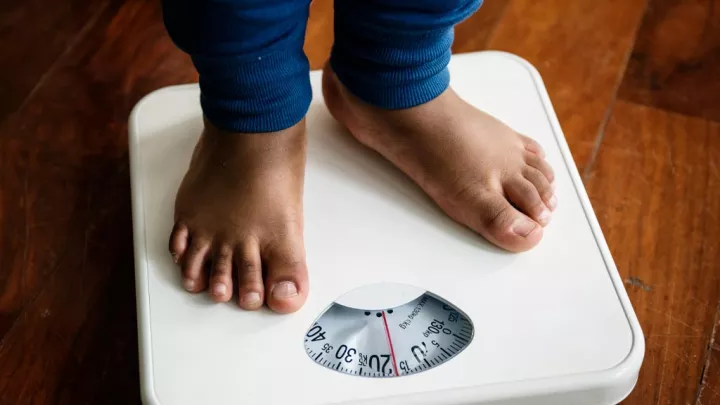
Is the Gut the Key to Bone Disorders in Chronic Kidney Disease?

Children with chronic kidney disease are at risk for a host of bone and mineral disorders, including skeletal deformities, fractures, bowed legs and slowed growth. Now, a multicenter study at Children’s Hospital Los Angeles is looking at these disorders from a new perspective: the gut.
The first-of-its-kind study is examining the gut microbiomes of pediatric dialysis patients to see how gut bacteria may impact normal bone growth and turnover.
Specifically, investigators are looking at whether abnormal gut bacteria may be failing to produce a short-chain fatty acid called butyrate, which is key to regulating bone health.
“We think that the constant uremia caused by poor kidney function may be altering the composition of gut bacteria,” says Elizabeth Kermgard, MD, a nephrology fellow at Children’s Hospital Los Angeles who is leading the study. “Without normal gut bacteria, the body can’t produce butyrate. And without butyrate, the body can’t properly regulate bone metabolism, which leads to these disorders.”
Need for new treatments
Prior published studies have already shown that dialysis patients often have abnormal gut bacteria and lower butyrate production. In addition, research in preclinical models has linked a lack of short-chain fatty acid production to abnormal bone metabolism.
“This is the first study to put those two findings together and try to prove this relationship in dialysis patients,” Dr. Kermgard says.

The team began recruiting patients in the fall. The goal is to enroll 48 children between the ages of 3 and 21 who have been on dialysis for at least three months and have not recently been on antibiotics, growth hormone or immunosuppressive medications.
Researchers are looking at both blood and stool samples to identify which bacteria comprise each patient’s microbiome. They are then analyzing production of short-chain fatty acids, especially butyrate, and measuring parathyroid hormone (PTH) levels—which rise when calcium and phosphorus are out of balance.
The project is a collaboration with Katherine Wesseling Perry, MD, MSCR, at the University of California, Los Angeles. The team is in the process of expanding the study to more centers as well.
If the group uncovers a relationship between the gut and butyrate production, the next step could be a clinical trial to test a possible treatment—for example, giving children a short-chain fatty acid supplement or a probiotic to support healthier gut bacteria.
That’s important because current treatments—which include vitamin D, calcium, phosphorus binders and dietary restrictions—often aren’t enough to preserve bone health.
“Children still experience fractures and other bone deformities, and these can have long-lasting effects,” says Nadine Khouzam, MD, Program Director for the Nephrology Fellowship at Children’s Hospital Los Angeles. “Looking at the gut is a completely different way of thinking about bone disease in these patients. The hope is that it would eventually give us something else in our arsenal to treat or prevent these bone disorders.”
The study has implications for other aspects of kidney disease, too. For example, poor calcium and phosphorus regulation can lead to calcium buildup in the arteries. Heart disease is the most common cause of death in adults with kidney disease.
A prestigious award
The research is funded by the American Kidney Fund’s Clinical Scientist in Nephrology Program. Dr. Kermgard was one of only two nephrology fellows in the country selected in 2021 for the prestigious award, which is also supporting her master’s degree studies at USC.
That accomplishment is all the more impressive given that the three-year Nephrology Fellowship Program at Children’s Hospital Los Angeles is only a year old. Dr. Kermgard is the program’s inaugural fellow.
“What I’m most excited about is the potential to really make a difference in how we treat mineral and bone disease in children with chronic kidney disease,” she says. “It’s an incredible opportunity to help move medicine forward so we can improve the lives of our patients.”
Learn more about the Division of Nephrology.



